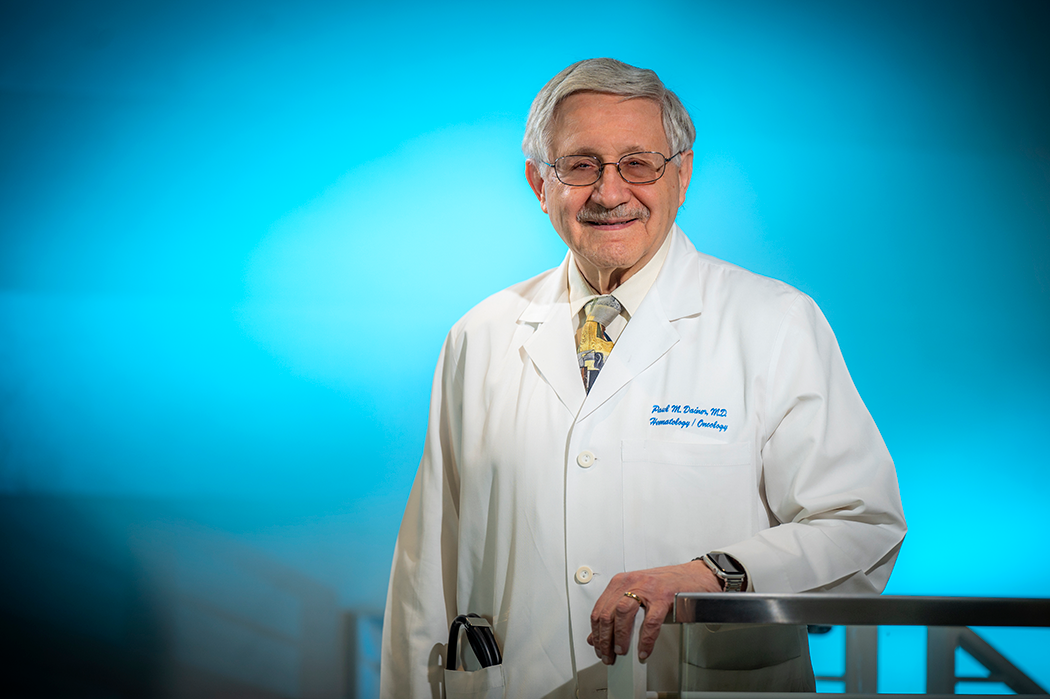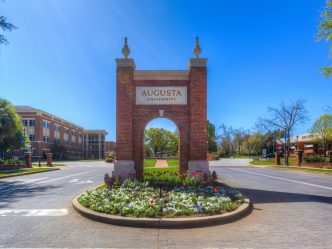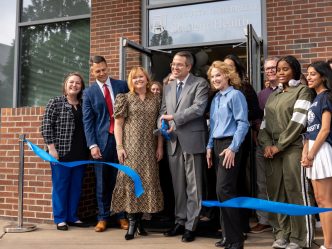You could say that service is in the DNA of Paul Dainer, MD.
He learned from his parents at an early age that service to others is one of the highest callings; it’s a calling he has answered time and time again.
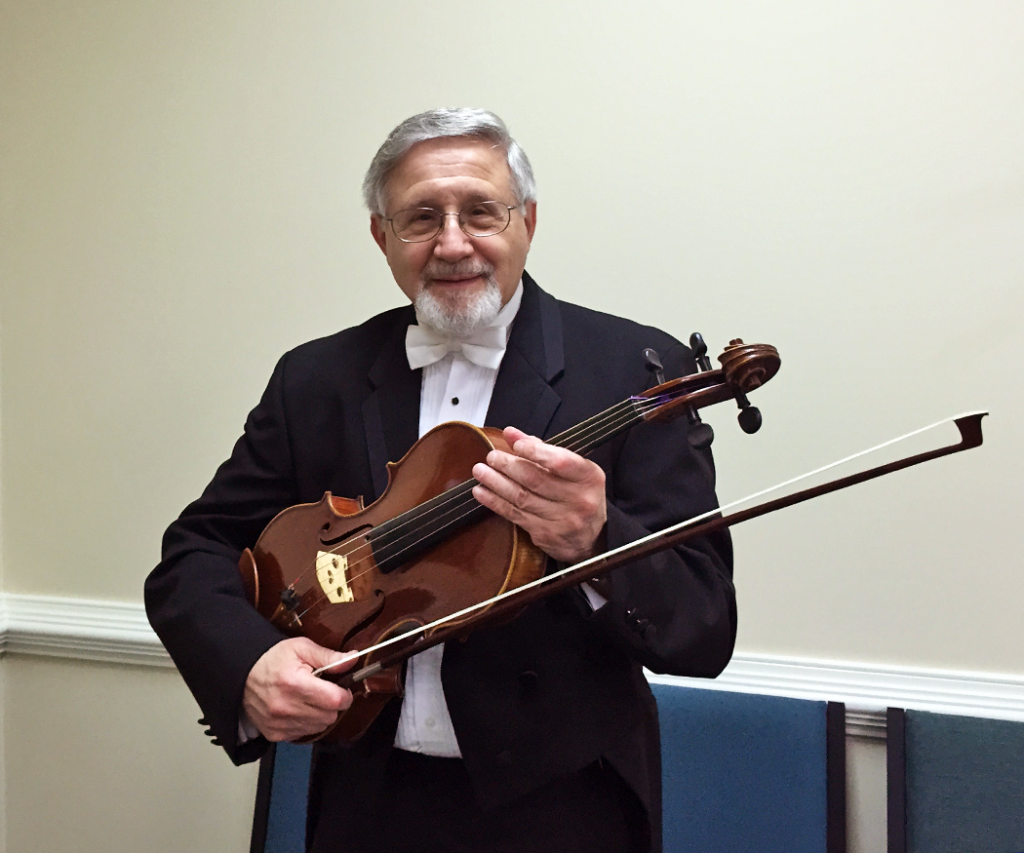
He served his country in the United States Navy and Navy Reserves for over 30 years combined.
He has served his patients, both military and civilian, faithfully since 1972.
Since arriving in Augusta, he has served his community through the Rotary Club, both locally in Richmond and Columbia counties and beyond in the CSRA.
And he has served his students since arriving at the Medical College of Georgia at Augusta University in 1992.
For the latter, Dainer, an associate professor of medicine in the Department of Medicine at MCG and the Georgia Cancer Center, has been recognized with the Elizabeth Hurlock Beckman Award. True to form, he used that award as a way to continue to serve students by donating a significant portion of the $25,000 prize money to MCG’s Southwest Campus in Albany.
“Dr. Dainer is great. He’s been at MCG for many years and has had a great career. I worked with him a good bit during my third and fourth years, and he was mentoring me to help me get into residency programs,” said Koosh Desai, MD, assistant dean of the MCG Southwest Campus. Desai nominated Dainer, his former mentor, for the award.
“Dr. Dainer was helping me develop so I could be a strong applicant for residency, and during that process, I was able to see how he interacts with his patients and students, and I saw firsthand the compassion that he has for his patients and what he does for cancer care. I was very honored to be able to nominate him for this award, and it was very gracious for him to turn around and donate part of it back to our campus.”
Koosh Desai, MD, assistant dean of MCG Southwest Campus
Gail McKnight Beckman created the Beckman Award to benefit teachers who have inspired their former students to make a significant contribution to society. The award is given to current or former academic faculty members who have inspired their former students to “create an organization which has demonstrably conferred a benefit on the community at large.” Alternatively, the academic faculty member must have inspired their former students to “establish on a lasting basis a concept, procedure, or movement of comparable benefit to the community at large.”
The Elizabeth Hurlock Beckman Award Trust was established in 2008 under the will of Gail McKnight Beckman, who created the award in memory of her mother. Elizabeth Hurlock Beckman was pioneer in the field of psychology who advocated the advancement of women in academia.
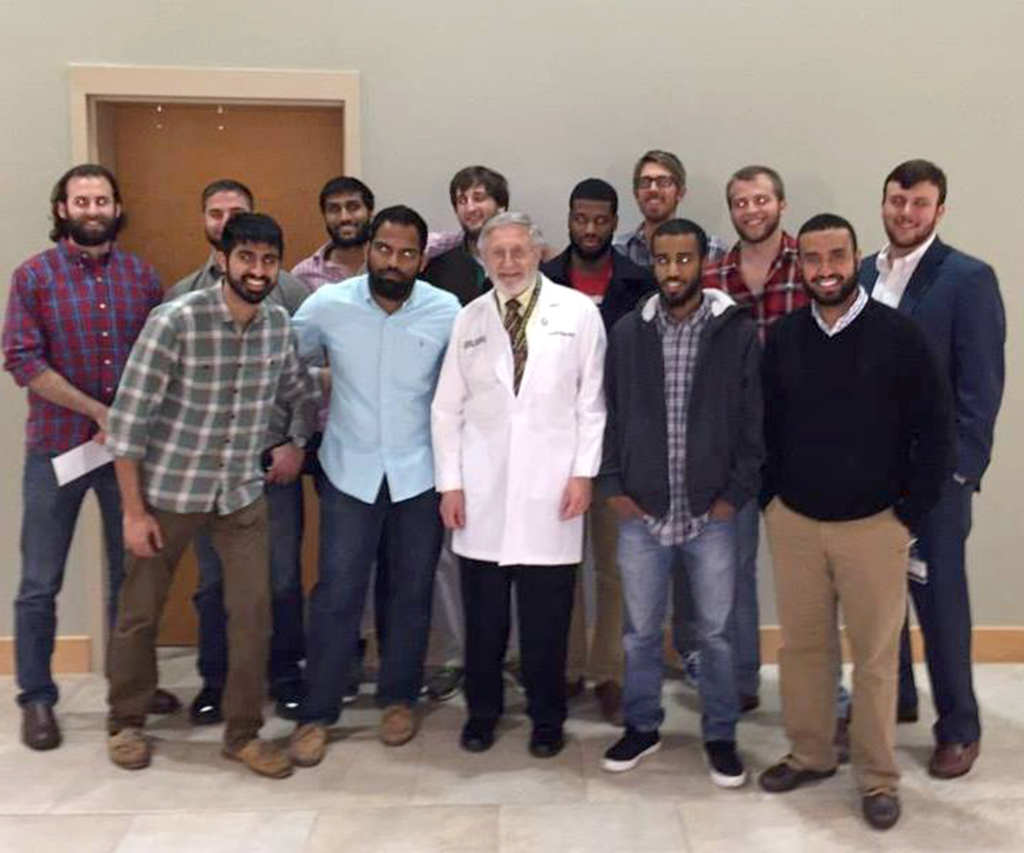
“I am incredibly honored to have been selected as a recipient of this award,” said Dainer. “You don’t go into education to chase awards or the money, so giving back a portion to the Southwest Campus made sense. Many of our MCG students are going down there to help alleviate the physicians shortage in rural Georgia, and educational programs can always use extra money to help offset costs of new equipment and housing. I was more than happy to continue to invest in our future.”
Early career and military service
Both of Dainer’s parents were educators; his father was a school principal and his mother, a guidance counselor. His father at one time had aspired to attend medical school, but World War II deflected his plans to serve others. It’s a theme that would help motivate his three sons years later.
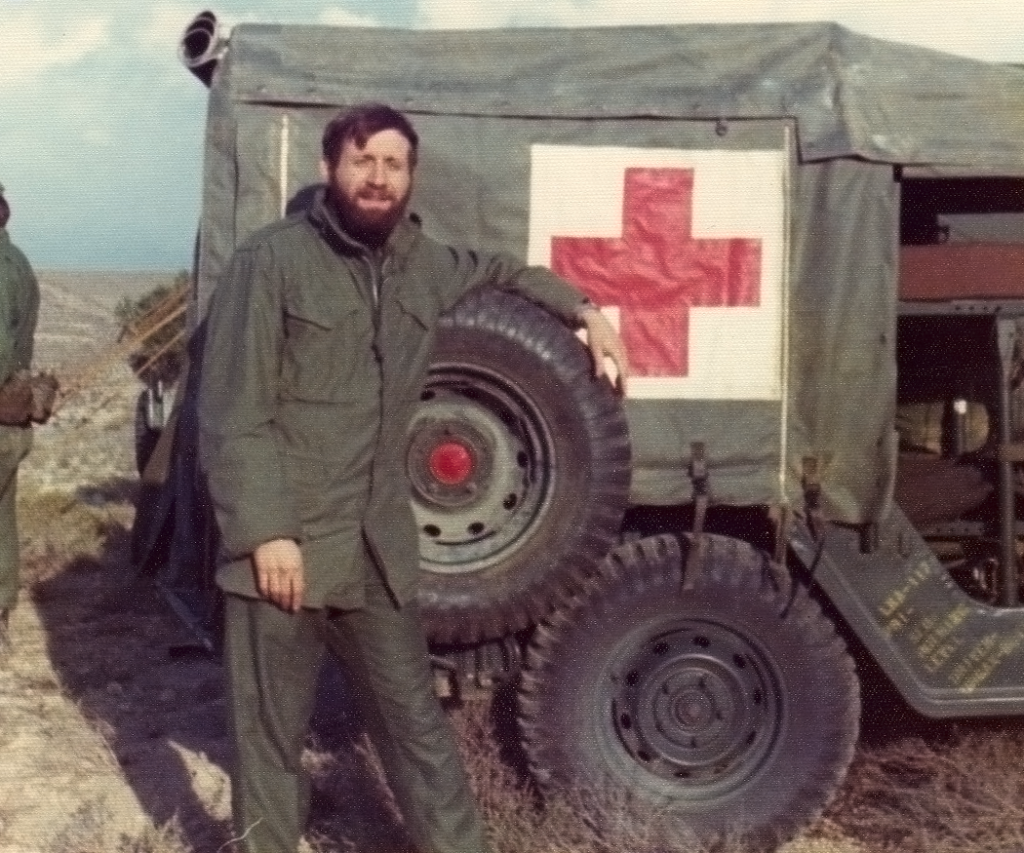
Dainer said it was his parents’ charge to care for others that guided him to attend Jefferson Medical College, followed by a residency in internal medicine at the Medical College of Pennsylvania.
While in medical school, Dainer took advantage of the Berry Plan, a pre-Vietnam War-era program enacted in 1954 that allowed physicians to defer obligatory military service until they had completed medical school and residency training, allowing him to obtain his internal medicine training.
The Berry Plan offered draftees three choices: entry into the Armed Forces after completing a medical internship, after completing one year of residency and returning to their residencies after completion of service, or after completion of a full residency program.
Following completion his medical training, Dainer commissioned with the United States Navy, beginning his service at the Naval Medical Center in Portsmouth, Virginia, and a tour of duty in the Mediterranean Sea on a helicopter carrier with a task force of Marines.
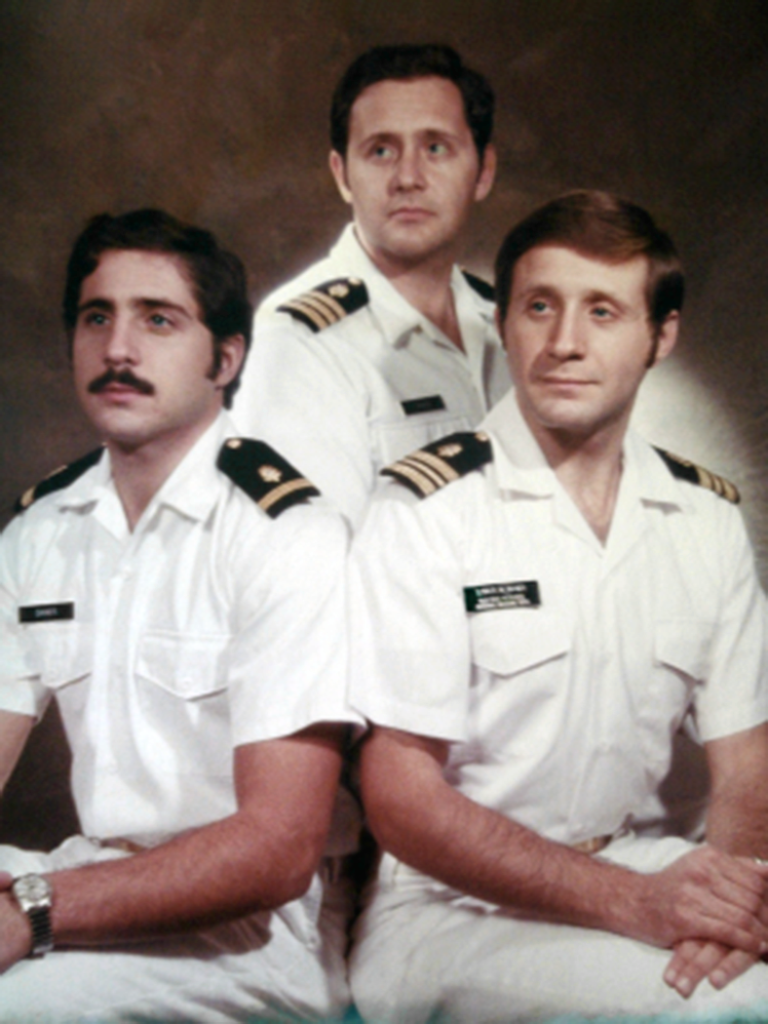
Dainer then completed a hematology/oncology fellowship at the Naval Medical Center in San Diego, California, before returning to the East Coast where he served at Charleston Naval Hospital in Charleston, South Carolina, and at Walter Reed National Military Medical Center in Bethesda, Maryland.
Shortly after arriving in Charleston, he met his wife, Monica, and they have been happily married for the past 42 years. They have two daughters, one serving as an emergency room nurse in Spartanburg, South Carolina, and the other, an internist/psychiatrist working as a therapist, educator and administrator in New York.
Once his active-duty obligation was completed, Dainer opted to join the U.S. Navy Reserves so he could continue to serve his country, his patients and his students.
“During my active naval service I had the opportunity to work with medical students who were rotating through our hospitals, and I greatly enjoyed interacting with them. The experience inspired me to teach both in a classroom setting and at the bedside,” Dainer said.
Transitioning to the classroom
Dainer came to the Medical College of Georgia as an associate professor of medicine in 1992 after spending the previous five years at East Carolina Medical Center in Greenville, North Carolina. Prior to his time at East Carolina Medical Center, he was a member of the faculty at Shands Jacksonville Medical Center, where he was the acting chief of hematology/oncology.
Once he arrived at MCG, he quickly learned to lean on his fellow faculty to learn how to be a better professor, including receiving considerable influence from John Fisher, MD, a professor in the Division of Infectious Diseases within the Department of Medicine.
“Dr. Fisher remains very much involved in teaching, and he has been a major inspiration to me because he genuinely loves to share his wealth of knowledge,” Dainer said. “I’ve attended some of his lectures. He likes to incorporate humor into his talks, but he still offers a lot of information about common and more obscure illnesses.
“Students might say, ‘Why do we have to learn about these?’ The answer is simple; you need to at least have some appreciation of these types of diseases because you might encounter patients from other areas of the world where these infectious diseases are more common. You will need to appreciate the essential facts about them. Dr. Fisher doesn’t go into nauseating detail, but he likes to provide the important information about these illnesses that students should know.”
On top of that, Dainer admits Fisher and others have helped him find a good balance between being too involved with his students’ lives and being too disconnected.
“I have always had this bad habit of being a little inquisitive,” Dainer shared with a chuckle. “You really need to ask your students what specialties and advocations interest them. I’ve had so much fun with individuals that are energetic and ambitious, and have noted that sometimes they just need a little bit of encouragement. But when I identify potential in individuals who aren’t applying themselves as much as you think they might, there is a fine line between providing encouragement and taking an overly critical stance. I strive to reach the proper balance.”
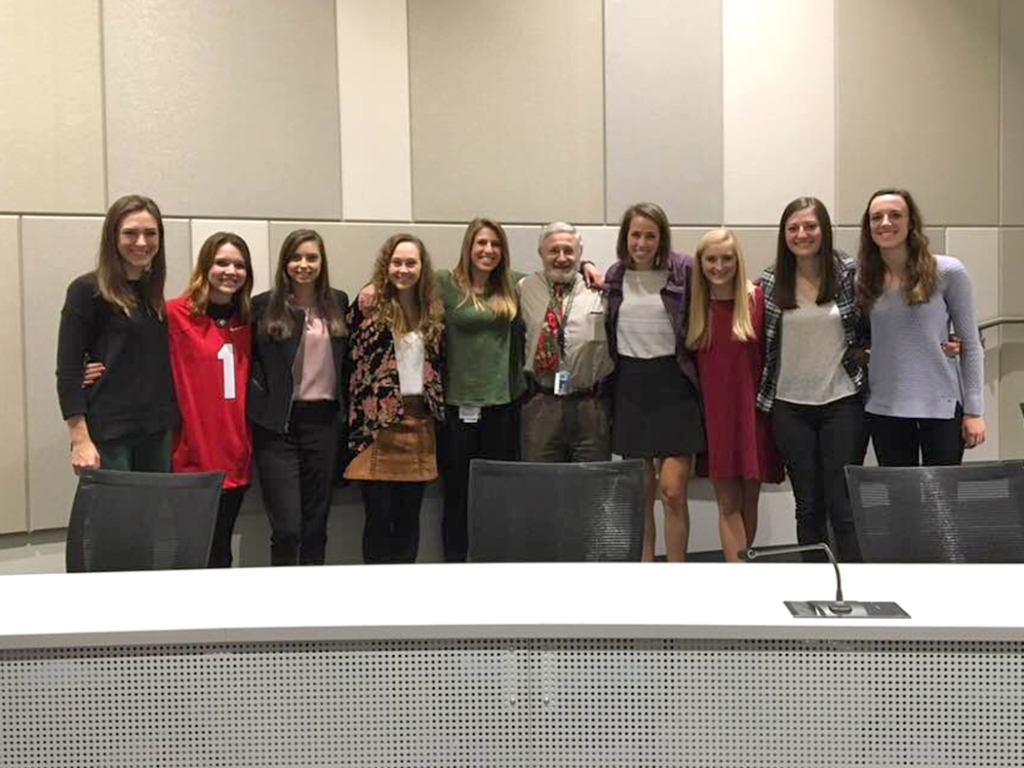
Staying busy despite semi-retirement
Since arriving at MCG, Dainer has initiated research affiliations with the National Surgical Adjuvant Breast and Bowel Project and Eastern Cooperative Oncology Group, and served as chair of the Cancer Committee, medical director of the MCG Cancer Clinic, and chief of hematology/oncology at Charlie Norwood VA Medical Center.
He has served as the clinical core lecturer of the Phase II Hematology Curriculum. On top of participating in cooperative group and investigator-initiated clinical oncology trials, he has co-authored several articles dealing with original clinical trials, review articles and case reports.
In addition to his teaching assignments and activities in the Georgia Cancer Center Clinic, Dainer previously served as physician liaison for the Smoking Cessation Program at Augusta University. He has also served on numerous faculty committees and has been a member of the Richmond County Medical Society, the American Medical Association, the American College of Physicians, the American Society of Clinical Oncology and the American Society of Hematology.
Nowadays, Dainer enjoys the semi-retired life. He plays the viola in regional orchestras and connects with former coworkers and students, and he remains active in Rotary, where his love for teaching and inspiring others can spill over.
“I am still lecturing to medical residents and hematology/oncology fellows and teaching medical and physician assistant students in in the classroom, and with the third-year medical students who are rotating on internal medicine on the wards. I spend a couple hours a weekly with them and they present written history and physicals to me that I that I carefully grade and make suggestions about improvement. And that’s basically what I’ve been doing over these past few years.”
 Augusta University
Augusta University
